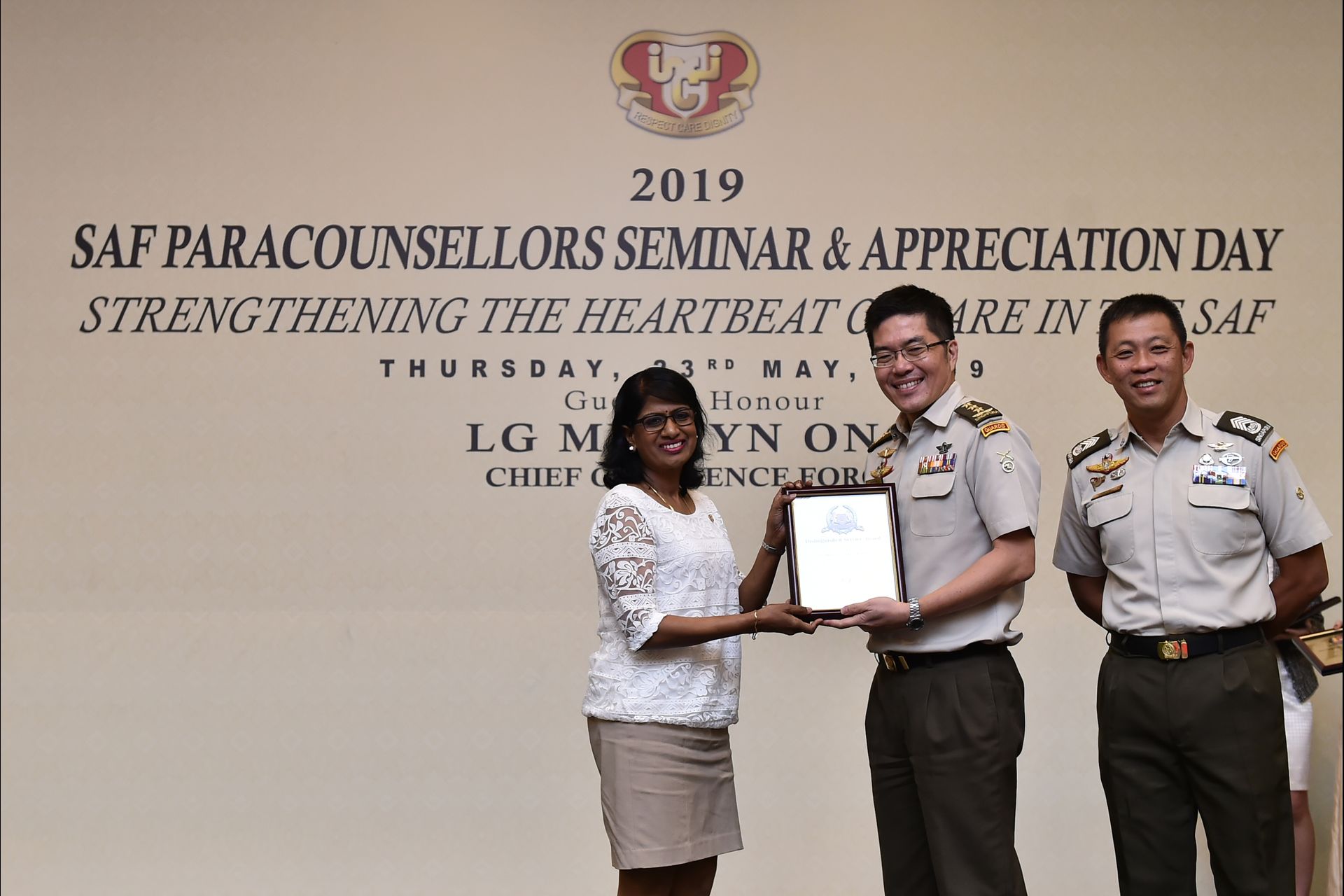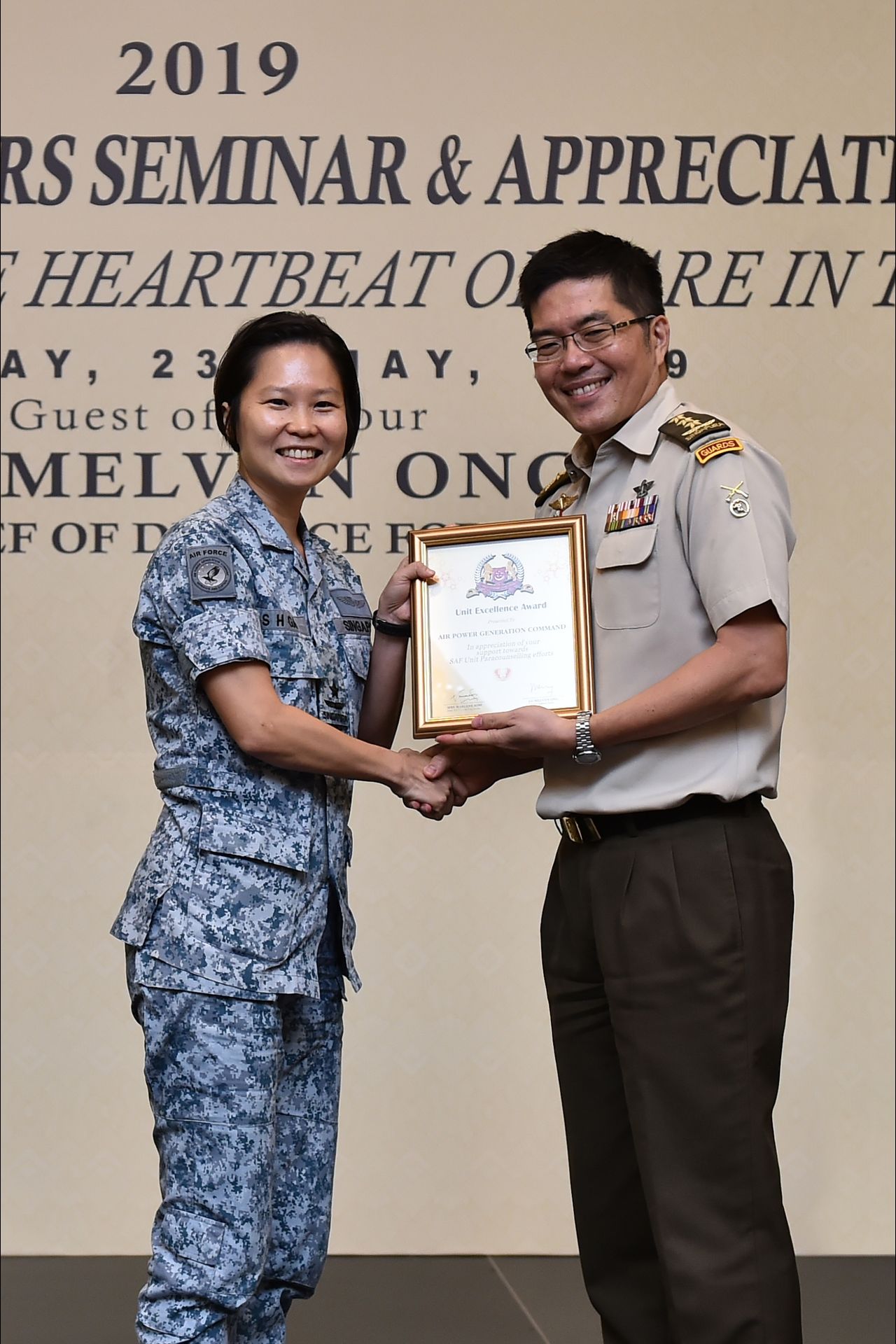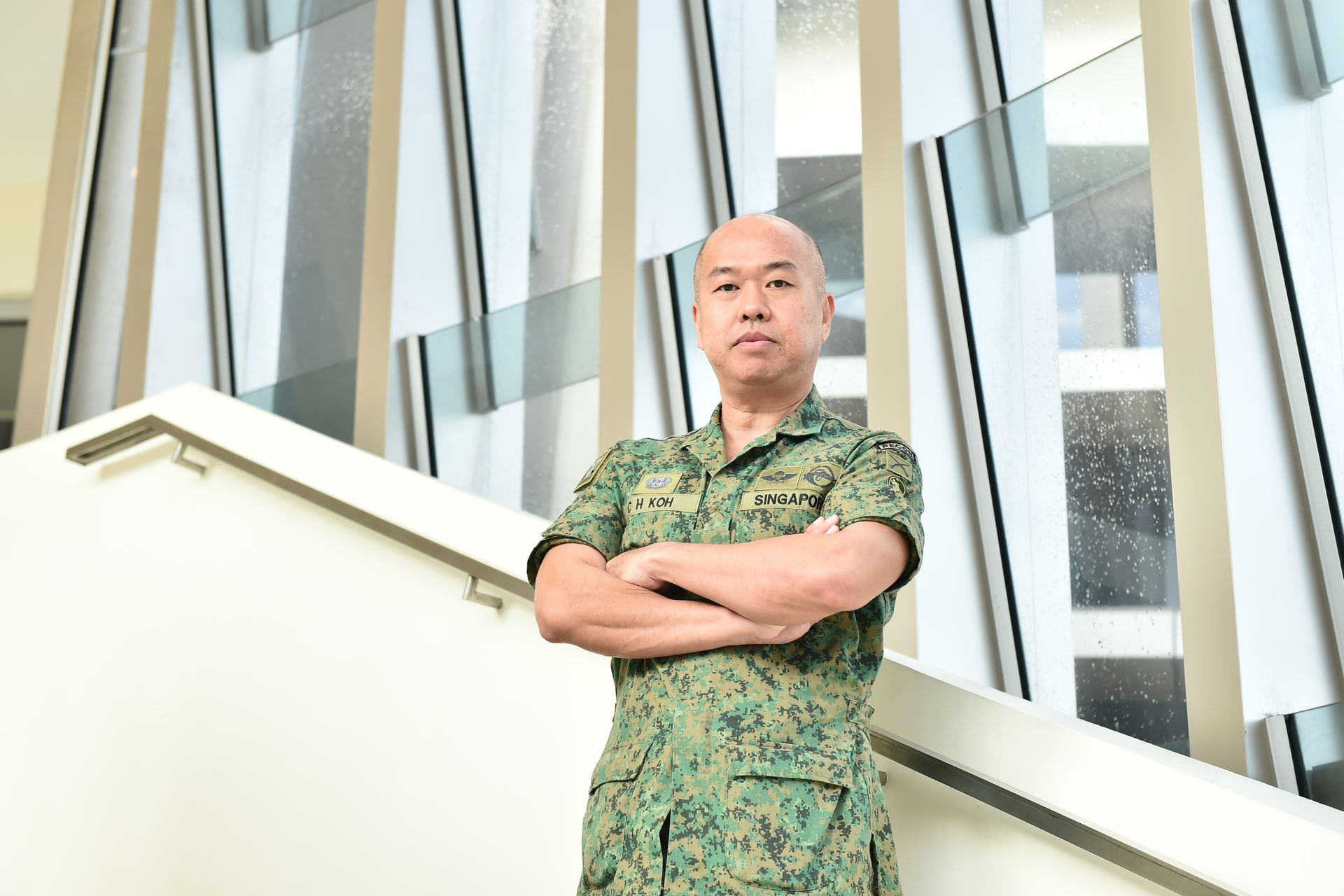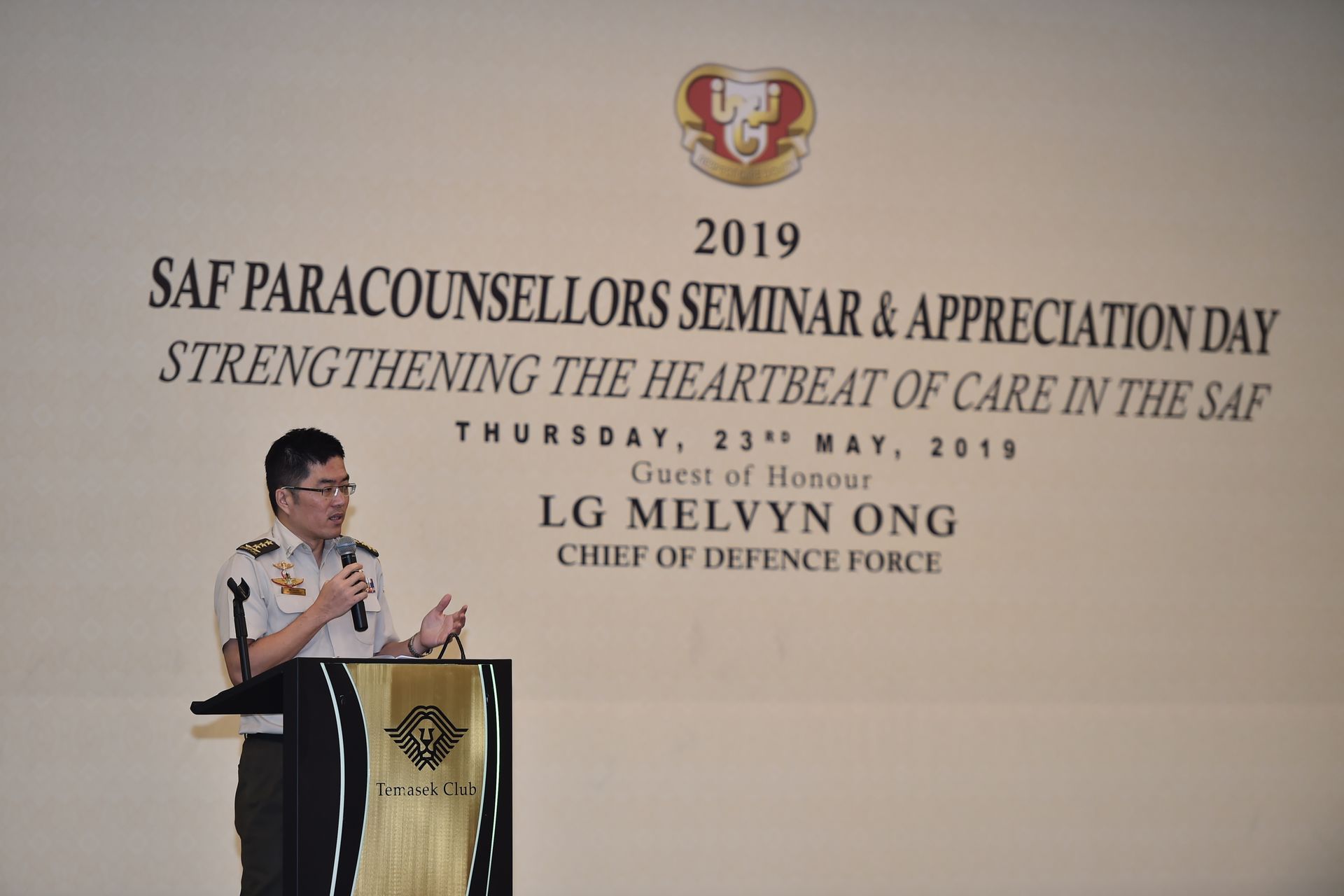MILESTONES
LENDING A HELPING HAND TO SERVICEMEN
24 May 2019
When a person is in distress, despair may overshadow the willpower to carry on with his day-to-day routine.
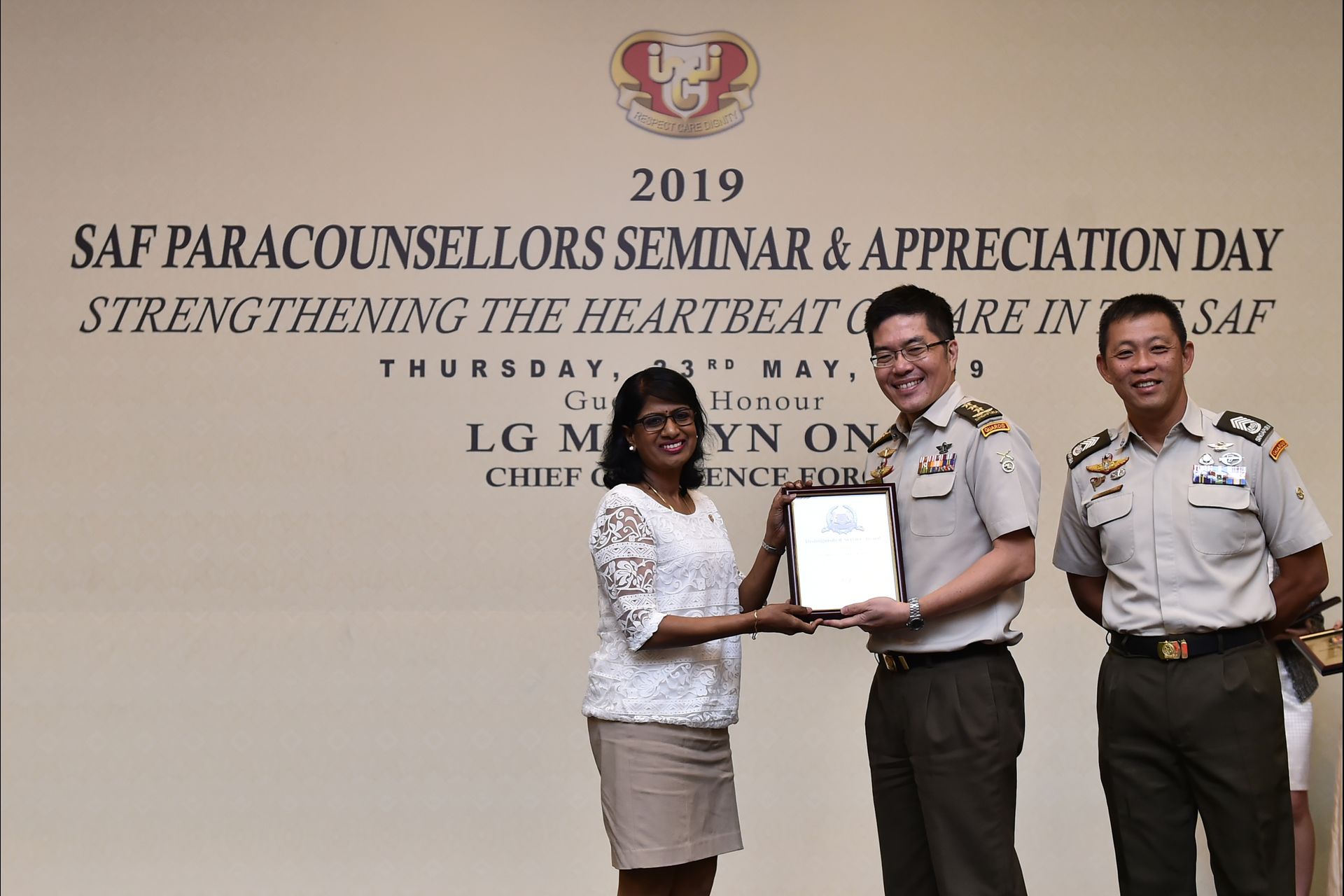
When a person is in distress, despair may overshadow the willpower to carry on with his day-to-day routine. During these dark times, a listening ear and words of support can make a big difference in helping him face his problems.
Over the years, Singapore Armed Forces (SAF) paracounsellors have provided care and concern to Full-time National Servicemen and Regulars who were at a low point in their life, often going the extra mile to help those in need.
Among those paracounsellors is Defence Executive Officer Maliha D/O Seenivasen.
Back in 2004, when Ms Maliha's colleague first approached her for counselling support, she initially thought he was joking. After seeing tears rolling down his cheeks, she knew that it was serious.
"He broke the news that he was diagnosed with Stage 4 colon cancer, and he didn't know what to do. It was one of the most difficult cases I've ever faced," recalled Ms Maliha.
She did her best to make him feel comfortable around her, and ensure that he could count on her for any assistance.
"I spoke to him frequently to check on his medical status, as well as how he was feeling and coping," she said. "I did hospital and house visits periodically, and I walked with him through his journey to give the fullest support that I could."
She is currently a Base Principal Paracounsellor in Air Power Generation Command (APGC) under the Enhanced Paracounsellors (EPiC) Programme. "The satisfaction of seeing (those I've helped) feeling so much better and knowing how to cope – that's a very great feeling."
For her commitment and efforts, Ms Maliha was one of three personnel given the SAF Paracounselling Excellence - Distinguished Service Award at Temasek Club on 23 May.
Speaking at the appreciation event, Chief of Defence Force Lieutenant-General (LG) Melvyn Ong thanked the paracounsellors for going beyond their call of duty to help manage distressed service personnel.
"Paracounsellors are absolutely critical…because you have a feel for what's going on on the ground with our servicemen (and) our units.
"You are the ones (who) give timely and practical help and support not only to them but also their families, especially in critical times… I know your job is not easy…but I have seen the fruits of your labour."
A total of 68 paracounsellors received the SAF Paracounselling Excellence Award, while two units received the SAF Paracounselling Unit Excellence Award.
Highlighting the importance of support from commanders, LG Ong added: "It makes a difference when commanders empower our paracounsellors to organise themselves to provide care for our people and to build a culture of care and psychological safety."
APGC, which received the unit award, launched the EPiC Programme in 2018. One of the programme's new initiatives was to introduce the role of the base principal paracounsellor, who is in charge of a team of paracounsellors at an air base and helps to monitor their progress.
"By having a good sense of the activities and tempo of the units in each base, the base principal paracounsellor will be able to match suitable paracounsellors to different distressed personnel," explained Brigadier-General (BG) Gan Siow Huang, Commander APGC.
Noting that it takes a village to raise a child, BG Gan added: "To me, this embodies the spirit of EPiC Programme – (we get) everyone who has a stake in this to work together, so that the paracounsellors feel well supported and (become even more) effective in supporting distressed personnel."
For Master Warrant Officer (MWO) Koh Chye Hin Roger, who received the SAF Paracounselling Excellence – Distinguished Service Award, it's about keeping in mind a set of personal guidelines: Force, Family and Future.
As a paracounsellor and a family liaison officer, he remembers that there is always a "Force" behind him, providing him with support in whatever he does. He treats the "Family" as his highest priority and generates an action plan to help them overcome any challenges they may have in the "Future".
"We need to be sincere and put ourselves in (the family members') shoes, thinking of and caring for them," said the Chief Master Trainer in Armour Training Institute.
"Trust is not achieved easily, and we must be prepared to take the extra mile regardless of any trouble we may face. The family's comfort and convenience always take centre stage."
ALSO READ IN MILESTONES
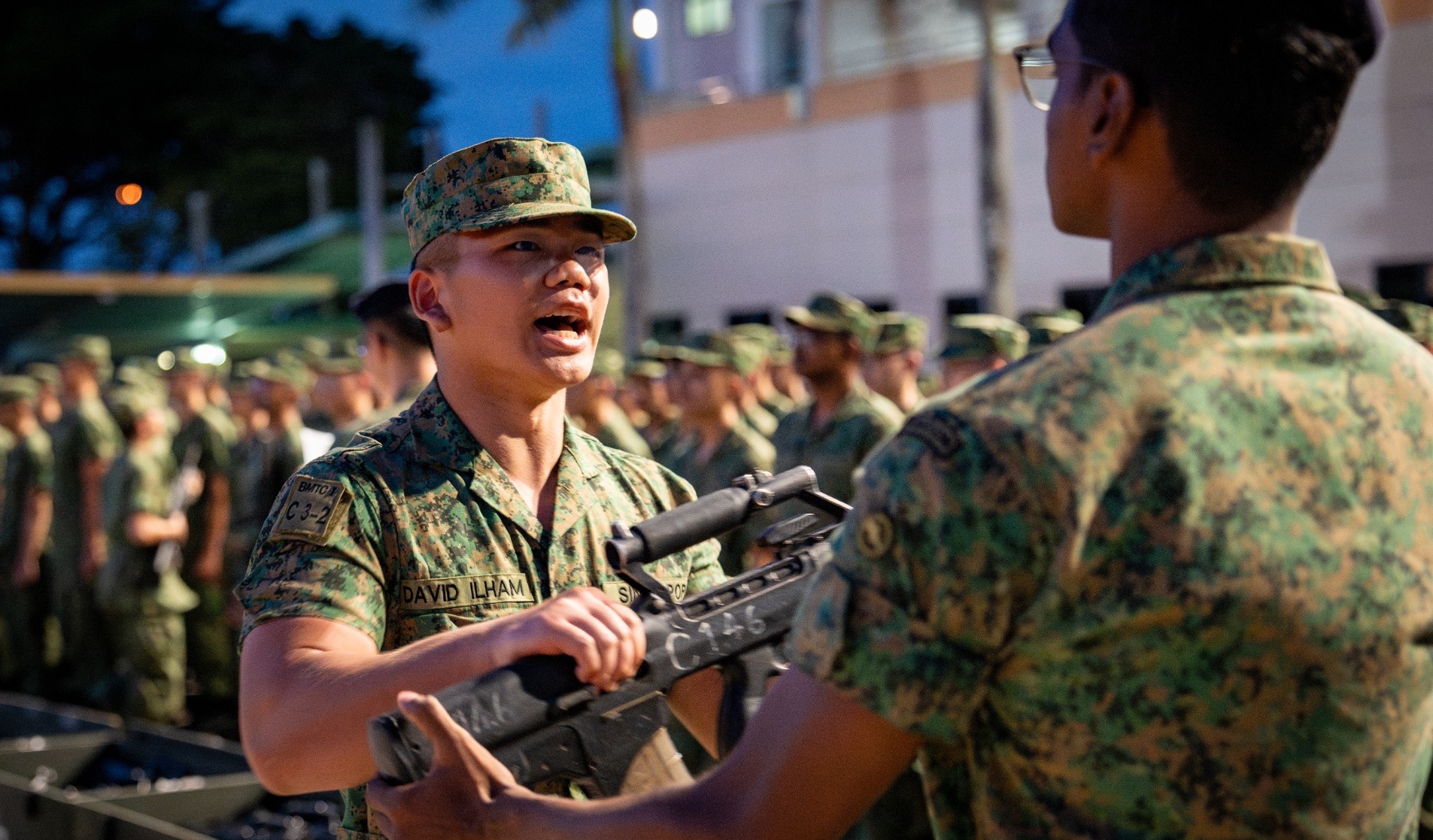
Answering the call to defend Singapore
21 Jan 2026
The Weapon Presentation Ceremony represents a powerful moment when recruits are entrusted with their rifle and begin carrying the weight of the nation’s defence.
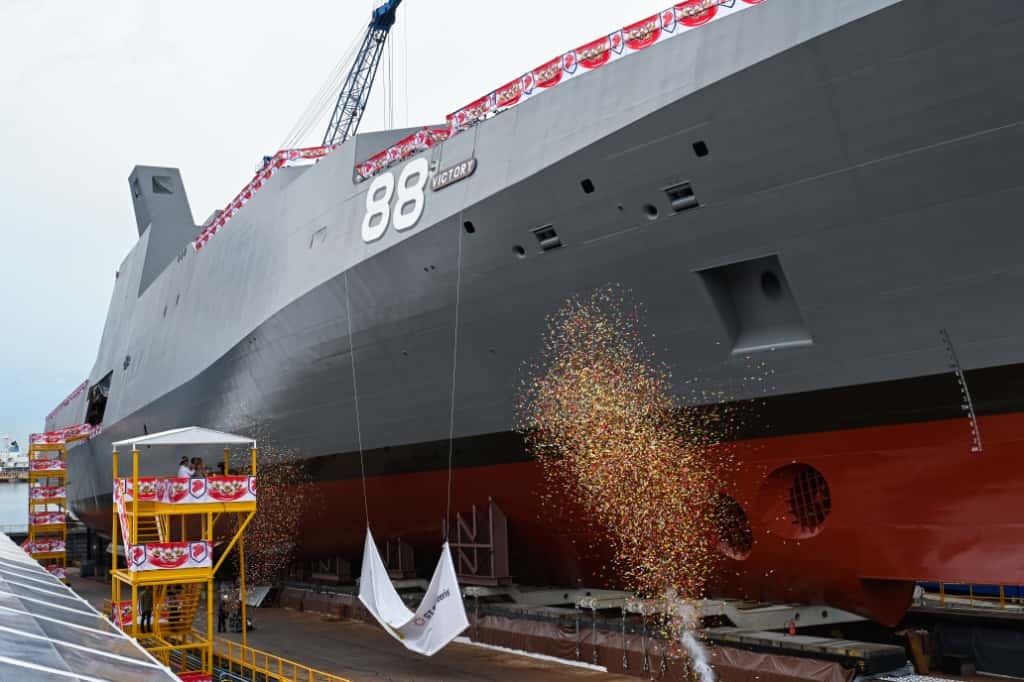
Navy launches 1st Multi-Role Combat Vessel
21 Oct 2025
The Multi-Role Combat Vessel will function as a mothership for the command and conduct of unmanned naval operations.
-dsc_2181.jpg?sfvrsn=cf9c6464_2)
What you need to know about the new CMPB
14 Oct 2025
The new Central Manpower Base (CMPB) at Bukit Gombak officially opened its doors on 14 Oct, welcoming pre-enlistees, servicemen and the public alike to a state-of-the-art, one-stop hub for all things National Service (NS).

